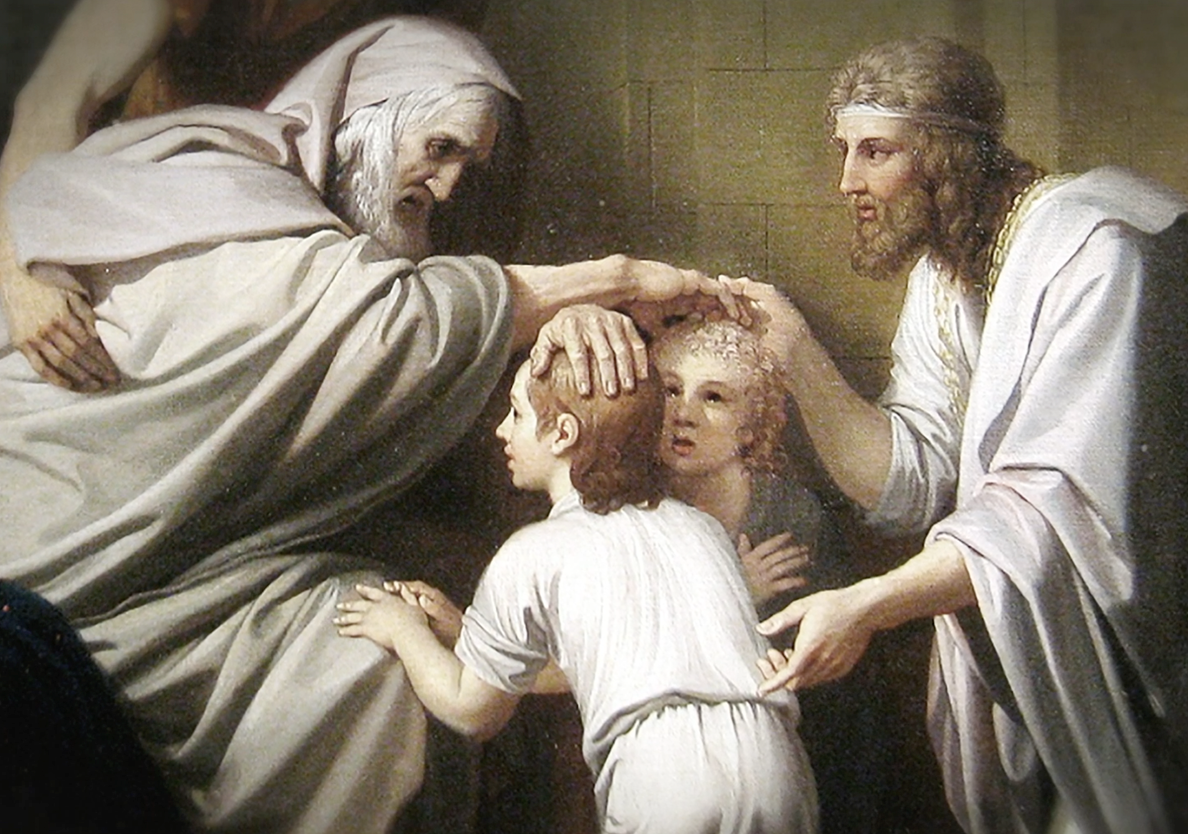What on earth does having damaged testicles have to do with the message of the Kingdom of God? Or for that matter, running sores, being a hunchback, or having an eye defect? Perhaps you thought about this as we looked at the parable of the banquet from the Gospel of Luke. Someone raised the question last week after the service about what connection the passage read from Leviticus has to the Parable of the Banquet in Luke. Here are some thoughts on this question.
These questions are raised from Leviticus 21.17-23. I suggest that this passage shows an important backdrop to understanding the profound nature of what Jesus came to do, did, and is still doing today. It fits within a larger pattern in Jesus’ ministry of sharing table fellowship with sinners and social outsiders. But it takes a little to work our way back into understanding how these hold together.
The place to start: Old Testament (OT) purity laws.
To avoid an over-lengthy post, I am splitting this discussion up into 2 parts. Part 2 can be accessed here.
OT purity
These OT purity laws are really important to help understand how novel, surprising, and meaningful Jesus’ actions of dining with the sinners were. To start with, here is the Leviticus text (21:17-23):
16 The Lord said to Moses, 17 “Say to Aaron: ‘For the generations to come none of your descendants who has a defect may come near to offer the food of his God. 18 No man who has any defect may come near: no man who is blind or lame, disfigured or deformed; 19 no man with a crippled foot or hand, 20 or who is a hunchback or a dwarf, or who has any eye defect, or who has festering or running sores or damaged testicles. 21 No descendant of Aaron the priest who has any defect is to come near to present the food offerings to the Lord. He has a defect; he must not come near to offer the food of his God. 22 He may eat the most holy food of his God, as well as the holy food; 23 yet because of his defect, he must not go near the curtain or approach the altar, and so desecrate my sanctuary. I am the Lord, who makes them holy.’”
At issue in this text is the priests. No man in the priestly family with one of these defects could bring sacrifices in the the tabernacle or temple. While they could eat the food set aside for the priests, they did not get to serve in the temple. Why? Is God prejudiced against handicapped people or people who happened to receive a major injury at some point in their life?
While that may stand out as a reason, the explanation lies deeper than just “you look bad, so I don’t want to see you.”
Orienting ourselves to the Law
When Christians talk about the OT Law, we tend to talk about it in terms of sin. The Law prohibits certain things, breaking the Law is sinning, and Jesus is the savior from sin that God provides. This is all well and good, as far as it goes, but it is far from a complete picture. In the NT, the Law often is talked about in terms of sin, but the category of sin does not exhaust what the Law deals with. In fact, a lot of the laws in the Exodus-Deuteronomy chunk of Scripture do not deal with sin, but what would better be described as purity and impurity (or clean/unclean).
Consider this following brief description:
“On the basis of Levitical law, everything in life was either holy or common for the Hebrews. Those things determined common were subdivided into categories of clean and unclean. Clean things might become holy through sanctification or unclean through pollution. Holy things could be profaned and become common or even unclean. Unclean things could be cleansed and then consecrated or sanctified to be made holy.”
Andrew E. Hill and John H. Walton, A Survey of the Old Testament, 3rd ed, 132.
Sin is only one way for a “common” or “holy” thing to become unclean. Disease, infection, contamination, etc. were other ways. There is an underlying logic standing behind laws about mildew in walls and on garments as well as laws on impurity caused by menstruation and ejaculation. They are not sin issues; rather, they are issues of clean/unclean. While an obvious and satisfactory reason uniting all the different purity laws is evasive, there are some major trends which run through them. Two of these are (1) life and death and (2) order/disorder.
Life and death
First, purity laws often relate to the categories of life and death. Semen and menstrual blood relate to the production of life, and thus result in being unclean, while sweat and breast milk do not, thus do not result in being unclean.
Order and Disorder
Second, the concept of order and disorder stands behind such laws as dealing with mildew in a house or on fabric as well as laws about physical impediments.
Why bother with all this clean/unclean stuff?
Purity as access to the sacred
In short, purity and impurity have to do with access to the sacred. In practice, this means someone who was not clean could not go into the tabernacle or temple. The closer one came to the temple, the greater the purity requirements. For the average Israelite, maintaining a generic state of purity would probably not have been that difficult. Think more like the effort required to keep up with the rules in a Homeowners Association than the sort of herculean effort people often make keeping the Law out to be. While the rules for the HOA may look and sound onerous on the outside, when everyone around you is doing it to, it is just the way things are. For the Israelite, life was arranged to keep general purity and to deal with impurity when it came up.
However, purity/impurity was a constant factor in access to God. As God dwelt symbolically among his people in the tabernacle and then the temple, there was a geographical place at the center of relationship to God. Of course, people learned about, followed, and worshiped God more than just at the temple. Indeed, it is hard to imagine that attendance at the temple was a regular feature for most Israelites in their lives at any point in its history. But, the center point was a place. And to get to that place required ritual purity because only the pure could enter into the presence of the holy.
The priests are special
The passage in Leviticus cited above is about the priests. The priests have a special set of guidelines, because they have a special relationship to the holy. While an ordinary Israelite could maintain generic purity without too much effort, priests required a greater level of purity because their role kept them in more constant contact with the holy. And this higher stringency is reflected in the laws regarding physical health among priests.
There is nothing sinful about having a skin disease, or a hunchback, or even damaged testicles. Members of the priestly families with these health conditions and/or handicaps and/or injuries were not excluded from priestly service because they were sinful, but because they fell short of the requisite purity for their job. This sort of purity seems to operate under the logic of functionality and orderliness. An orderly and functional human body does not have a hunchback; thus a hunchback is a departure from the norm, thus unclean for the purpose of priestly work.
One might think of it this way. Physical handicaps and broken bodies are embodied representations of the marring effect of human rebellion against God. To have a physical handicap or injury or ailment is not itself sinful, but it is a lived-with mark that the world is broken. To approach God as a priest required a level of purity which did not allow bringing broken bodies into the service. That sounds harsh to us (even though in our society we tend to de facto segregate people with handicaps and physical ailments aside anyway), but that is the logic at work in the OT Law.
Summary on purity and the law
While the Law does deal with sin and morality, this is just one category within the broader paradigm of pure/impure, clean/unclean. A lot of the violations which render one unclean are not moral/sinful, they are just pure/impure. However, the very existence of purity and impurity is an embodied reminder that access to the holy—access to God—is ruptured. Adam and Eve, we are told, had access to God in the Garden of Eden. They talked with him, and it is implied that they regularly had interaction with him, in whatever form that would have taken. For everyone after the rebellion against God, we live in a constant state in which our access to God is (mercifully) cut off because if we were to come into contact with the holy in our impure state, we would die. The Law, among many other things, provides the means to stay pure/clean to a proficient degree in order that the people of Israel could bear God’s name and have him in their presence. Even this generic level of purity, though, is not sufficient to gain access to God. For that, people are too impure.
This paradigm of purity serves as a key background for understanding Jesus’ ministry. To that, we turn now in part 2.






